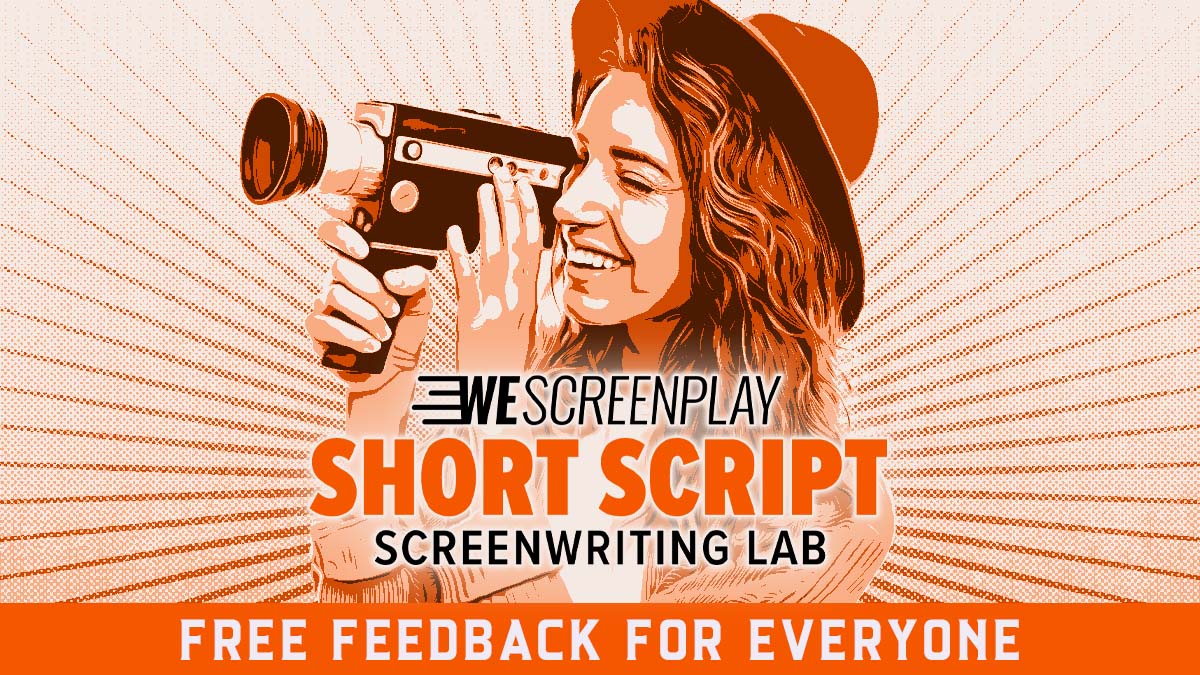 First things first — what is a screenwriting lab? Screenwriting labs are educational programs that allow writers to workshop their screenplays while developing different skills that will help them as professional screenwriters, such as pitching or working in a television writers’ room. Working with accomplished showrunners, executives, and industry professionals, screenwriting lab participants get access to one-on-one story meetings, craft workshops, studio or representation meetings, and simulated writers’ rooms. Together, these meetings provide an elevated creative strategy for artists’ material from key industry players in positions to advance their projects.
First things first — what is a screenwriting lab? Screenwriting labs are educational programs that allow writers to workshop their screenplays while developing different skills that will help them as professional screenwriters, such as pitching or working in a television writers’ room. Working with accomplished showrunners, executives, and industry professionals, screenwriting lab participants get access to one-on-one story meetings, craft workshops, studio or representation meetings, and simulated writers’ rooms. Together, these meetings provide an elevated creative strategy for artists’ material from key industry players in positions to advance their projects.
Although there are variations among screenwriting labs or programs, their fundamental purpose typically involves accomplishing several essential objectives:
- Connect you with fellow writers
- Expand your network of professional relationships
- Help improve your writing, usually a specific piece of writing or script
- Set you up for success as a writer
The WeScreenplay Labs do this by developing the entry scripts, coordinating notes-giving sessions with peers, hosting specific workshops, and introducing writers to professionals in the industry.
But because there are so many types of screenwriting labs out there, it’s important to do your research to find the right lab for you. Here are a few things you’ll want to look for in a screenwriting lab.
Table of Contents
A Good Reputation
Screenwriting labs can be an avenue to gain traction, deepen your skills, and open doors. Still, with so many out there, it’s critical to discern where to spend your money and be honest about why you’re submitting to that particular lab.
The two biggest labs out there are, of course, Sundance Screenwriters Lab and Film Independent Screenwriting Lab. They’re both very well-respected, which is important when you want your placement to mean something when looking for reps and employment, but they’re also incredibly difficult to get into. It’s worth it to find other reputable writing labs that have the same goal of taking your craft and career to the next level.
Make Sure It’s Not Actually Just a Writing Competition
Screenwriting competitions and screenwriting labs — what’s the difference?
A screenwriting competition is designed to help great scripts get read by industry professionals and help them build some momentum and credibility. The key is to find reliable competition rather than one designed to make money for a company. A reliable competition will have vetted industry professionals as judges, experienced readers, and prize packages that can help a screenwriter advance in their careers.
A writing lab or fellowship, on the other hand, is designed to help launch a sample or a career. They’re all different, but they generally consist of interactive, hands-on workshops, industry meetings, and mentorships designed to elevate craft and business techniques for writers while bolstering their network.
If you’re looking for the latter, make sure the screenwriting lab you’re entering offers all of that.

Many submission forms for screenwriting lab entries come with an option for coverage. Ask your network for recommendations — did entrants feel their feedback or coverage was fair? Was the entry fee reasonable? How was the customer service? WeScreenplay provides free coverage to every entrant. Slamdance has given feedback to screenwriters who impressed the judges but didn’t advance to place. These personal touches demonstrate when a company is sincerely trying to provide career assistance for writers.
The Right Lab for the Right Story & Storyteller
If you have a TV pilot, then it’s clear that you want to submit to a TV or episodic lab rather than features or a documentary lab. Alternately, it should be obvious that if you want to get into an episodic lab, you will need to write an episodic sample — your one-person show probably ain’t gonna cut it.
Additionally, you can look for labs created for specific people or projects. For example, the WeScreenplay Diverse Voices Lab seeks to help elevate stories that are told from perspectives that are often underrepresented in film and TV today, including writers of color, women writers, writers with disabilities, writers over 40, writers in the LGBTQ+ community, and any other voices that Hollywood has historically ignored.

The Writers Lab at the Athena Film Festival is a three-day creative development workshop for emerging women and non-binary writers, providing storytellers with creative guidance, training, industry access, and a valuable, supportive network. Applicants must submit a project that includes a woman or women characters in a leadership role or position at the story’s center.
If you are a writer from an underserved community, chances are there is a lab or program out there designed to lift you up and elevate your career. If your screenplay is unique or about a topic that mainstream programs have neglected, there just might be a lab for you, so do your research and seek out those opportunities and communities.
Read More: Who Are Screenwriting Labs For?
A Screenwriting Lab That Fits Your Career Needs
If you have producers and names attached to your script, it may not require the kind of development that, say, the Sundance Episodic Lab is designed to provide. You may need a production/financing/distribution lab.
Maybe you aren’t able to travel, and you’re looking for a virtual lab. Maybe your screenplay is solid, but you need to meet industry professionals and literary representatives to help you get it into the hands of a buyer. Just because a lab is prestigious doesn’t mean it’s the right fit for you. Don’t waste your time or money on entry fees and submit essays for something that won’t actually help you meet your goals.
Read More: How To Build Your Writing Community Through Screenwriting Labs

—
Remember, while writing a screenplay is a creative act, screenwriting is still a business. Think of labs the way a medical practitioner might look for a conference — it’s a business decision that could require money, at least for entry fees, and will certainly require time and energy. Make sure to conduct thorough research to identify a program that can enhance your creativity, add value to your project, enrich your overall experience, and equip you with the necessary skills for a successful career.
Ask around, listen to interviews and podcasts of previous participants, and read their bios and loglines to ensure that your project is a fit for the program just as much as the program is a fit for you. Be realistic about your project’s competitiveness (did you ask a peer to provide feedback or seek coverage from a trusted source? Is it proofread? Have you done character passes and dialogue passes and given it a critical eye from the perspective of a judge?) and set yourself up for success. Then, get submitting!
Good luck and happy writing!
If you want to jump in even further, check out The Ultimate Guide to Screenwriting Labs!
 Shannon Corbeil is a writer, actor, and U.S. Air Force veteran in Los Angeles with recent appearances on SEAL Team and The Rookie. She was also a 2023 DGE TV Writing Program Finalist, and her screenplays have placed in various contests. You can read more about her on her website or come play on Instagram and Twitter!
Shannon Corbeil is a writer, actor, and U.S. Air Force veteran in Los Angeles with recent appearances on SEAL Team and The Rookie. She was also a 2023 DGE TV Writing Program Finalist, and her screenplays have placed in various contests. You can read more about her on her website or come play on Instagram and Twitter!

















